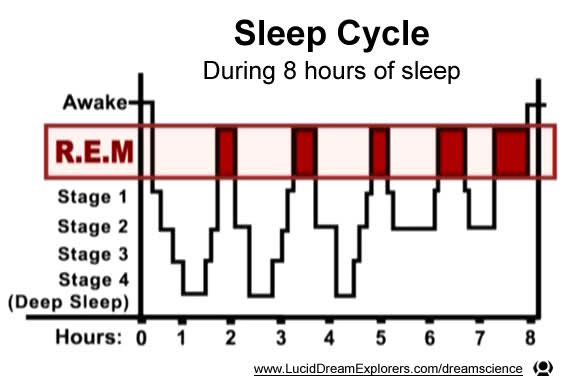
noun Physiology.
- a recurrent period of sleep, typically totaling about two hours a night, during which most dreaming occurs as the eyes move under closed lids and the skeletal muscles are deeply relaxed.
n.
- A stage in the normal sleep cycle during which dreams occur and the body undergoes various physiological changes, including rapid eye movement, loss of reflexes, and increased pulse rate and brain activity.paradoxical sleep
- Short for rapid eye movement sleep. A period of sleep characterized by rapid periodic twitching movements of the eye muscles and other physiological changes, such as accelerated respiration and heart rate, increased brain activity, and muscle relaxation. REM sleep is associated with activity in the pons of the brainstem; when the pons is eliminated, REM sleep does not occur. REM sleep is the stage of sleep in which most dreaming takes place and is thought to allow for the organization of memories and the retention of learning. REM sleep is the fifth and last stage of sleep that occurs in the sleep cycle, which repeats itself about five times throughout a period of sleep. It is preceded by four stages of non-REM sleep. REM stages become longer with each cycle and account for about 20-25 percent of total sleep in adult humans. In infants, roughly 50 percent of sleep is REM sleep, which is believed to be necessary for the maturation of the central nervous system. Compare non-REM sleep. See more at sleep.
 Liberal Dictionary English Dictionary
Liberal Dictionary English Dictionary